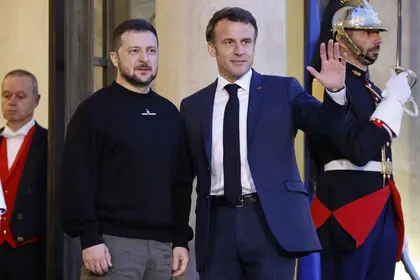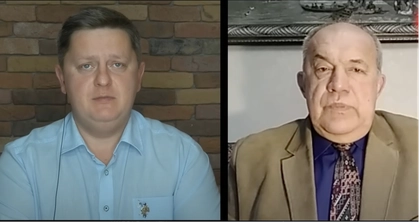During his visit to Italy, Germany and France to consolidate support prior to Ukraine’s pending counteroffensive, President Volodymyr Zelensky received further practical and policy commitments from Ukraine’s key western European allies and leading NATO members.
Asked when his country’s counteroffensive against Russia would begin, Zelensky told journalists: “after a few more meetings.” Zelensky also met with Pope Francis.
JOIN US ON TELEGRAM
Follow our coverage of the war on the @Kyivpost_official.
In terms of military support, Germany and France both made new commitments to Ukraine.
Germany announced a new weapons package worth $2.95 billion for Ukraine, which is reportedly the biggest from Berlin since Russia's invasion.
The package includes 30 Leopard 1 A5 tanks, 20 Marder armoured personnel carriers, more than 100 combat vehicles, 18 self-propelled Howitzers, 200 reconnaissance drones, four IRIS-T SLM anti-aircraft systems and other air defense equipment.
In Berlin, German Chancellor Olaf Scholz said that “we will support you for as long as it is necessary,” adding that Germany stood with its partners “for Russia to be held to account for its misdeeds.”
France announced that “in the coming weeks, France will train and equip several battalions with tens of armored vehicles and light tanks including AMX-10RC” but did not provide specific numbers.
Paris said it would also focus on “supporting Ukraine’s air defense capacities in order to defend its population against Russian strikes” as well as train some 6,000 Ukrainian troops in both France and Poland.

Exiles From Occupied Bakhmut Find Hope in Christmas Celebrations
In Rome, Italian Prime Minister Meloni condemned Russia’s “brutal and unjust aggression” against Ukraine, pledged Italy’s support for Kyiv for “as long as is necessary,” and urged Moscow to immediately withdraw. However, no specific military commitments were made.
“You can’t achieve peace through a surrender,” Meloni said. “It would be a very grave precedent for all nations of the world.”
About his trip to Western Europe, Zelensky said that a key goal was securing more fighter jets from allies.
“We are currently working on the creation of a fighter jet coalition, and my visits to European capitals are partly aimed at this. I think we will have success,” he said.
Thus far, Ukraine has acquired 45 jet fighters from allies. This consists of: 14 Su-25s jointly purchased by NATO members from Bulgaria; four non-airworthy Su-25s from North Macedonia; 14 MiG-29s from Poland; and 13 MiG-29s from Slovakia, some of which are for spare parts only. It is reported that 40 of the 45 aircraft have now been delivered.
Ukraine has repeatedly requested fighter jets from the US. The requests have been for up to around 120 planes, including F-16s and F-18s that are being gradually phased out in favour of F-35s. Ukraine has lost some 60 planes of its own during Russia’s full-scale invasion.
Prior to the weekend’s announcements, according to the Kiel Institute’s Ukraine Support Tracker, Western Europe’s long-term powers had made the following military, humanitarian and financial commitments to Ukraine:
· France: $1.89 billion; ninth largest contributor; 24th as a proportion of GDP;
· Germany: $7.99 billion; third largest contributor; 18th as a proportion of GDP;
· Italy: $1.11 billion; 11th largest contributor; 27th as a proportion of GDP.
According to Kiel, in total contribution terms, the United States and United Kingdom are ranked first and second before Germany. Latvia, Estonia and Lithuanian are the top three contributors as a proportion of GDP.
In terms of political commitments, through Joint Declarations agreed between Ukraine and France, Italy and Germany, they included the following:
· support for Ukraine’s candidacy for the Europe Union subject to Ukraine meeting reform requirements and with no timeframes specified;
· support to increase collective pressure on Russia through further sanctions – without specifying the types of actions that might be taken;
· support for increased partnership and/or cooperation between NATO and Ukraine, including in the lead-up to the NATO Summit in Vilnius, Lithuania in July;
· support for President Zelensky’s 10 Point Peace Formula;
· support for war crimes investigation and prosecution efforts, for post-war compensation by Russia, and for Ukraine’s post-war reconstruction.
In terms of the Pope, Zelensky called on the pontiff “to clearly condemn Russia’s military aggression against Ukraine” and emphasized that there cannot be equality between the victim and the aggressor.
You can also highlight the text and press Ctrl + Enter






